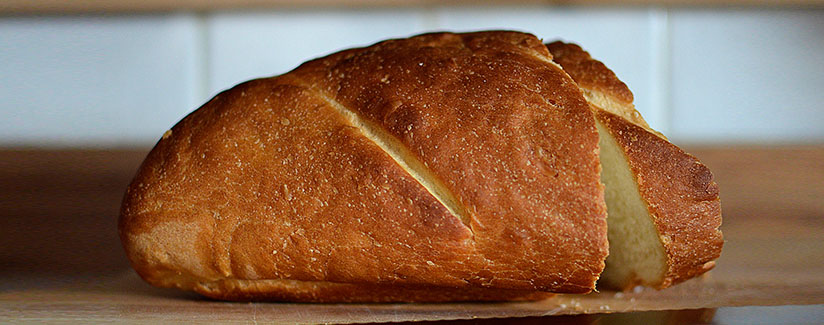
Is Wheat a “Perfect Chronic Poison?”
10/12/2012
A recent episode of The View focused on a report from Dr. William Davis that claimed wheat is a “perfect chronic poison” that stimulates our appetites and ultimately, on average, makes us consume 440 more calories per day. In an age where paying attention to calorie intake is essential, this is something that made our ears perk up.
The basic idea is that over the last 50 years, hybridization of the wheat grain has taken place to increase crop yield and lengthen shelf life. To do this, a protein called gliadin was added to the grain. The theory is that the higher concentration of this protein has made wheat less digestible, which causes an allergy.
According to Dr. P. Stephen Baenziger, wheat breeder and geneticist at the University of Nebraska-Lincoln, wheat is relatively higher in protein than other cereal grains such as rice and corn and therefore, lower in carbohydrates. In addition, Dr. Baenziger says that wheat from 100 years ago exhibited the same qualities as modern wheat, so the assumption that today’s wheat varieties create gluten sensitivity is unfounded.
We have worked with a few experts to answer questions about food (including wheat) allergies, gluten intolerance, and possible connections between gluten and obesity, and we once again reached out to our experts to weigh in on the latest report from Dr. Davis that was recently featured on The View.
Experts:
Dr. Ruth MacDonald, Chair and Professor of the Department of Food Science and Human Nutrition, Iowa State University
Sally Mackenzie, PhD, Ralph and Alice Raikes Professor in the Department of Agronomy and Horticulture in the School of Biological Sciences, University of Nebraska-Lincoln
Dr. Mackenzie:
Like all of these types of reports, they are founded in some element of truth, but laced with hyperbole so as to cause alarm. It is true that there is research on alpha-gliadin, a fraction of the gluten proteins that is identifiable by its solubility in alcohol. This fraction appears to be the problem element for people with Celiac disease. In this research, there is some evidence that in Celiac patients, binding may occur between alpha-gliadins and certain opioid-like receptors. This is an avenue of research aimed at trying to understand the disease, similar to our studies of peanut allergies or effects of cholesterol on the heart. Taken out of context, you can see what happens.
As for our food supply, wheat is not a genetically engineered crop. All modifications are made through natural plant breeding methods, and no specific effort has been made by the plant breeding community to increase the gliadin fraction of the wheat protein. Nevertheless, it is likely that there is some variation in this protein level across the world’s varieties of wheat, and no doubt some wheat breeders are testing whether this can be eliminated from the gluten fraction by wheat breeding.
What I find misleading is that Dr. Davis is implying that breeders have been careless. The technologies he refers to during the “green revolution” were designed to increase yields, and most people would attribute giant leaps in our ability to feed the world to the green revolution (Norman Borlaug won the Nobel Peace Prize for just the work that Dr. Davis attacks).
Dr. MacDonald:
Within the mix of proteins in wheat, gluten is comprised of gliadins and glutenins. So gluten sensitivity includes gliadin – and there is a body of literature about gliadin antibodies. Gliadin antibodies in the blood have been used as an indicator of Celiac disease, and there has been research to determine if these antibodies in patients with known Celiac disease cause neurological or psychiatric disorders.
Some papers that tried to correlate the antibodies or gluten sensitivity to ataxia, neuropathy, Alzheimer’s and MS found no link; however, some studies did correlate neurological disease with levels of antibodies. I suspect there is evidence that gluten sensitivity, if untreated, could lead to increased antibodies to gliadin, which may have a negative impact on the neural system, but this is not fully understood.
The extreme view that everyone should avoid wheat because of this is not well supported by the evidence – the loophole here is that people are now finding a continuum of sensitivity to gluten proteins, which opens the door to more people that might be having negative effects to wheat leading to this type of public warning, which is clearly overblown and not well supported.
Want to make your own whole wheat bread at home? Check out this step-by-step tutorial from the Home Bakers Association:
Looking for a non-wheat alternative? Check out this recipe for gluten-free bread from Shauna who blogs at GlutenFreeGirl.com:
“Bread” by M Dribelbis is licensed under CC BY.




























